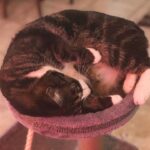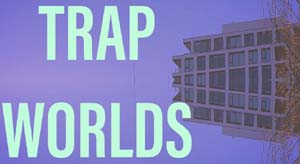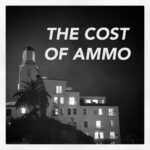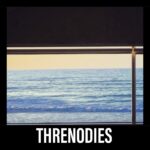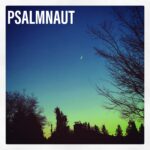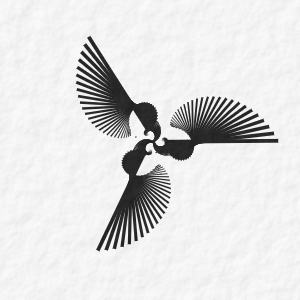Seems like a lot of people are taking inventory of their pandemic experiences, so I will too.
(As someone on Twitter recently joked, citing Garrison Keillor: Nothing happened to me, and now I’m going to tell you about it.)
Like millions of others, I spend a lot of time alone these days. Don’t my lonely red office curtains express this quite well?
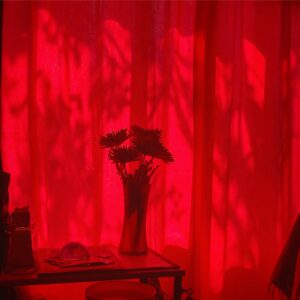
Working from home during the pandemic is ironic given that I escaped the work-from-home scenario last fall and found myself a nice office downtown, which had other people in it. This liberated me from isolation psychosis and fugitive thoughts.
Tracking spreadsheet data and testimony exhibits above the din of neighbors’ home-renovation projects and motorcycle maintenance makes me feel like an accountant in a war zone. I laugh at high-status people who talk gleefully about how working from home has emancipated them from the shackles of office life. Easy to say when you’re working at home in an affluent community with no noise. It’s an entirely different scenario when you’re in a dense urban neighborhood filled with bored retirees and their power tools.
Class divisions are highlighted during quarantine. This thread resonates.
NIGHT RIDER
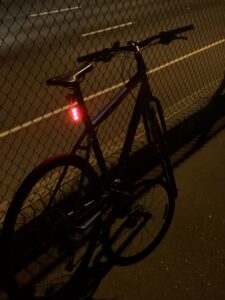
I’ve been biking at night on a stretch of caged pavement that runs parallel to the highway. This is freeing and restrictive. I hate the highway noise. The path stretches deep and dark into nowhere. But it blasts me out of sedentary stasis. It feels moderately dangerous, in a dorky way, but also in a “what kind of freaks are out here?” way. I’ve gotten honked at for, presumably, being outside during lockdown.
Trucks zoom by, and sometimes their junk falls off onto the bike path. Tool cases, tree branches.
Loud cars spike my decibel counter app. Speed, concrete. Unplaces.
UPDATE: My caged pavement has lost its anticlimactic allure. I’m back to riding on nearby neighborhood streets, where it’s quieter. More peace of mind.
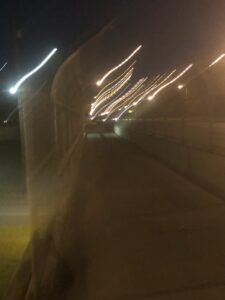
INTERFACE ANOMALIES
I speed by my home on these night loops and entertain rookie philosopher thoughts like: “does my living room exist when I’m not there?”
This jibes with a blog post by Twitter friend Dharmapoppins, re: Donald Hoffman‘s Interface Theory of Perception, which riffs on the idea of how humans navigate — in crude, imprecise ways — a strange and hidden reality. The Jacques Vallee passage hits the right note (emphases added):
Jacques Vallee, in his A Theory Of Everything Else TED Talk, spoke of reality as being made up of instances – the pencil in your hand is an instance of the pencil that was in your hand a moment ago – an idea that correlates nicely with Interface Theory’s stance that every time we close our eyes, the physical world disappears and is not actually there.”
Pandemic-fueled theories of hidden realities and interface anomalies collide with the Pentagon’s alleged UFO footage, which adds more weird context to the current moment. (Although the Pentagon footage looks suspiciously ordinary to me.)
DELIRIUM VORTEX
I’m online. Often. I sift through digital ephemera. Lost continents of the human mind. Old McKenna interviews.
I come up with titles for creative output. Concept art for short stories, DIY films, etc. These draw from a delirium vortex of trash novels, comic books, film noir, manifestos. Abbey, Varese, Hopper, Chandler, Ballard, Sienkiewicz, Bradbury, Henry Miller, Xenakis.

TOTEMIC MUSIC SIGILS
I make A/V quarantine art to entertain myself, using pal Brett‘s music as a soundscape.
Then Brett reciprocates in a most awesome way, volleying back something Deerhoof might produce in an alternate universe.
TRAP WORLDS
My music playlists bounce from the airy and ethereal to comforting trancescapes to dark ’80s cheese to songs that fit the 2 a.m. COVID vibes perfectly. Hiding songs.
Some evenings I channel Dr. Amp. Searching for answers “in a society…spinning out of control.”
Twin Peaks feels relevant. An excellent fan theory presents the idea of a “trap world” in Twin Peaks, which exists to catch the malevolent force Judy. The show’s high-voltage depth charge aligns well with the unsettling vagaries of corona life.
I’m suspicious of the number 37.
MACHINES IN THE SKY
I used to complain about work travel but I find myself missing the fluorescent midnight hell at SFO.
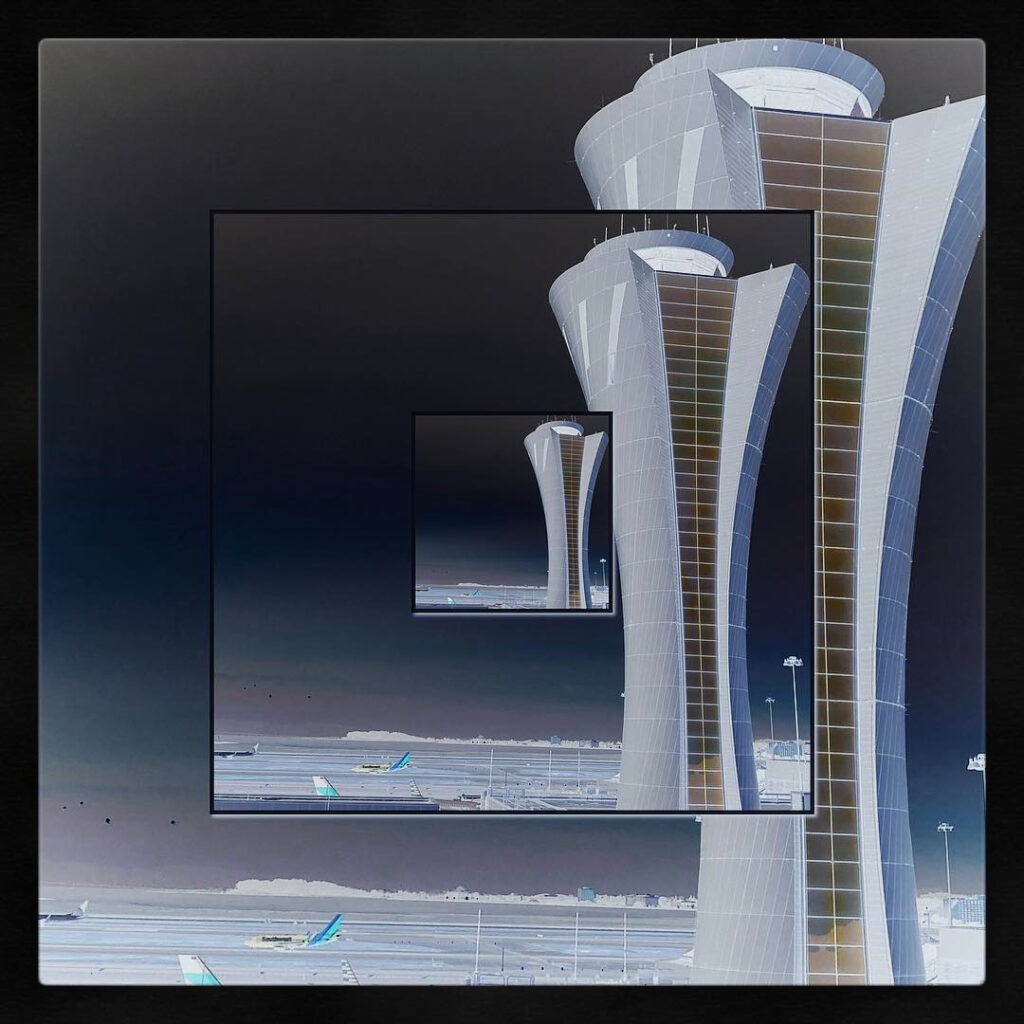
I’m reading Based Deleuze and Cocaine Nights.
I revisit blog posts written seven years ago.
I’m less confused by the language of hermetic Twitter subcultures than I used to be.
My inner circle of Twitter friends is a vital bunch. I find them funny, amazing, and brilliant.
My family is scattered across three households, and I see them infrequently. This causes bouts of worry. When my son is here, we break quarantine to go planespotting. Machines in the sky.
I have strange dreams: Montana towns repurposed as techno-futuristic sci-fi strongholds, covered in snow. Conversations with Ken Nordine. I wake up one night to the random memory of being unpersoned by peers during my sophomore year of high school.
JUBILEE STREET
My pandemic experience has death at both bookends. In March, my friend Nate killed himself. And my mother-in-law is now dying from cancer. A line in Cocaine Nights about the suicide of the narrator’s mother makes me emotional.
My family is due for a few miracles. I witnessed one last fall when this rock-music god blessed my marriage in front of 3,000 strangers and then sat down to play Jubilee Street on the piano. DM me, I’d love to tell you the story.
For various reasons, that October night was a reminder that you must go full Neville Goddard in this life: be your own reality-manifestation device, whether through ritual, hyper-charged sigils, or prayer. Nowadays, when I put Jubilee Street on my living-room stereo, the song’s end crescendo blasts shockwaves into the ether and I can talk with my dead friend Nate. The song is magic; the Cave–Ellis connection has power.
Summer is almost here. It promises to be weird AF.
Cats are avatars of god
